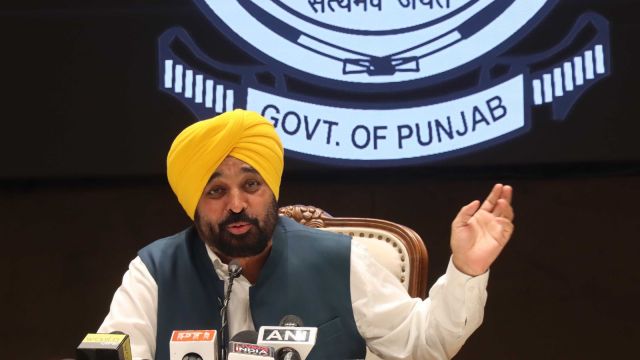
Seven years after former chief minister Amarinder Singh’s government passed two Bills providing for stricter punishment against sacrilege, the Punjab government is slated to bring another legislation punishing acts of sacrilege in a two-day special session of Vidhan Sabha likely to be convened on July 10 and 11.
Aam Aadmi Party (AAP) spokesperson Neel Garg said on Saturday that the government would bring a “historic legislation” for stricter punishment against those guilty of sacrilege.
He added, “The Centre should have done it. However, the AAP government is bringing it in Punjab as it understands the emotions of the people of the state.”
Chief Minister Bhagwant Mann has already called a Cabinet meeting on Monday to summon the special session. The government’s decision to bring legislation reportedly stems from a silent protest by Gurjeet Singh in Samana, who has been protesting atop a BSNL tower since October 2024. He has been demanding the death penalty for those found guilty of sacrilege.
CM Mann had on Sunday announced that the state government will introduce legislation to ensure harsher punishment for acts of sacrilege against religious scriptures or holy granths (books). He made the announcement while he was chairing a meeting with officers and representatives of the Sarb Dharam Beadbi Rokko Kanoon Morcha at his official residence.
Sources said that the government was concerned about Gurjeet Singh. It is learnt that Chief Secretary KAP Sinha told the CM that if something happened to Gurjeet Singh, it could create a law and order situation in the state.
The issue of sacrilege at Bargari had snowballed into a major law and order situation during the SAD-BJP regime in October 2015. A source said that the government was making sure that Gurjeet Singh was being supplied food, water and other necessities atop the tower.
In the meeting, Mann had stated that Punjab is a “sacred land” of great gurus, saints, and seers who have shown the path of “mutual love and tolerance”. He claimed that the state government is firmly committed to ensuring “exemplary punishment” for the perpetrators of sacrilege incidents.
The government is bringing the legislation on sacrilege even as the two older Bills on sacrilege are pending with the Centre. These two Bills were passed by the Punjab Assembly in 2018, during former CM Amarinder Singh’s regime. The Centre had termed Punjab’s amendments to the Indian Penal Code (IPC) and the Code of Criminal Procedure (CrPC) to give life imprisonment to sacrilege accused as a “harsher punishment”. Mann had written to Union Home Minister Amit Shah in 2023 for getting the President’s assent on the two Bills.
The chief minister had stated that the government would consult leading legal experts to ensure that a robust state legislation is enacted – one that prevents offenders from evading strict consequences, including the possibility of capital punishment for such crimes. He expressed concern over ‘existing legal loopholes’ that allow individuals guilty of such acts to walk free, calling it completely unwarranted and unacceptable.
The CM had stated that every person involved in sacrilegious acts, either directly or indirectly, will face exemplary punishment.
Mann said that it is the “bounden duty” of the state government to ensure that these “dreaded criminals” are held accountable for their actions. He added that the state government would consult all stakeholders, including religious organisations, in drafting the legislation.
The CM had highlighted that while the Bharatiya Nyaya Sanhita provides clear provisions regarding religious places, it remains silent on holy granths. However, he said that as the subject falls under the concurrent list, the state has the authority to enact such legislation, and legal opinions will be sought accordingly. Mann had said that this process would be completed shortly to assuage the sentiments of the general public.